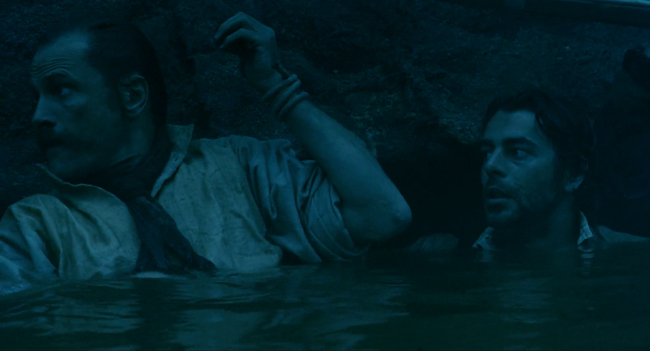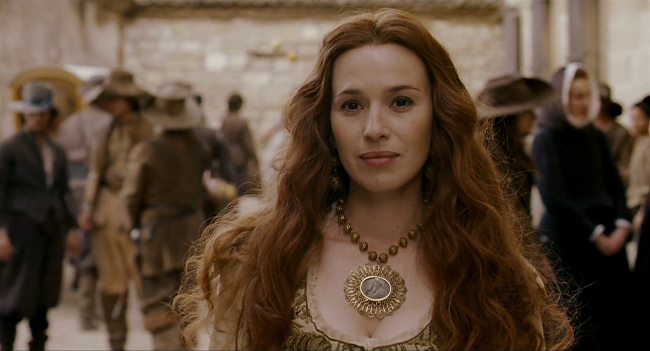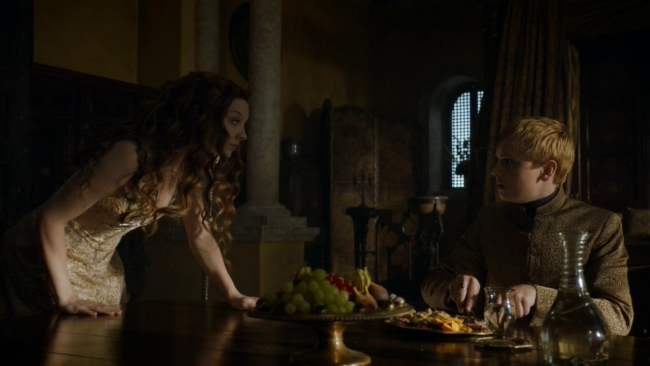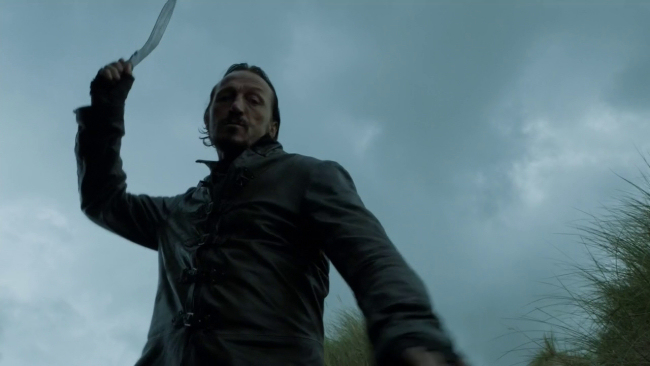
"I watch it for historic reasons, to try to understand what this world was based on before I got here. I like to know how we got from there, to here, and the similarities between then and now." - Snoop Dogg, a.k.a. Snoop Lion, on why he watches Game of Thrones.
I like Snoop Dogg so I like to think he was kidding around. But this does bring me back to my suspicion that people are taking Game of Thrones as actual history, or at least reflective of it. He seems somewhat taken aback in this clip where someone points out to him that the only black dudes on the show had their balls and possibly their dicks cut off.

Here's a tender moment from last night's episode where the recuperating Grey Worm is attended by Missandei, who he's falling for despite his lack of equipment. That the two are unquestioningly obedient to their white emancipator sometimes reminds me of the "Abraham" musical number from the 1942 Bing Crosby and Fred Astaire film Holiday Inn where a black serving woman and her child sing rapturously about President Lincoln.
But the Unsullied aren't the only black people on the show. Some of the former slave masters are black, including one who's witness to two more dumb ideas from Daenerys.
Spoilers ahead
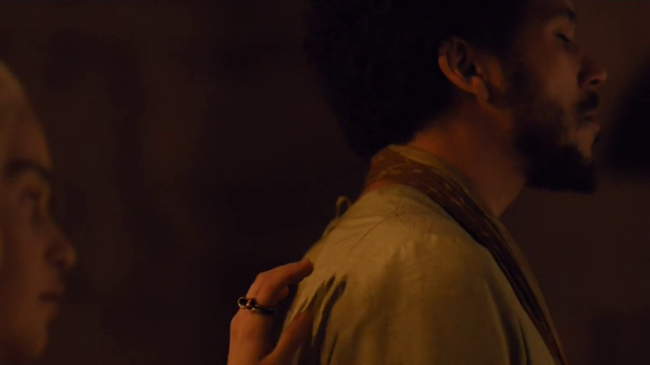
First she arbitrarily imprisons all the heads of great families in Meereen after the gold mask Klansmen killed Ser Barristan, then she randomly executes one of them whose name and personality whe never hear anything about, then she decides to propose marriage to Hizadr, one of the family heads, in the hopes of making an alliance that makes her part of the society. That should sit really well the former slaves who were pissed off when she summarily executed a former slave.

In addition to actually establishing personalities and positions in society for the heads of the great families, the show would also do well to take a few notes from the aftermath of the American Civil War. How are former slaves adjusting to life in freedom? Are they finding work? Where are they living? Are the former slave owners finding their businesses crippled? The impression the show gives is that all the slaves were butlers, valets, maids, and concubines. All the vagueness while Daenerys paces in her palace wondering what to do makes the show feel like a hypothetical history discussion among libertarian high school students.

Where did George R.R. Martin get the idea that castration turns people into willing slaves? To be fair, Varys isn't like that, but the consistently stupid story of Reek and Ramsay sure reflects this. A lot of last night's episode was given over to the Bolton story. I'm hoping it's going to end up with Sansa somehow bringing all the Boltons to destruction, finally making good on her makeover.
But there were two progressions of storyline last night liked, Jon Snow's story and Tyrion's story.

I love the tension in Jon needing to bring peace between the Wildings and the Night Watch. Even more, I enjoyed Tyrion and Jorah sailing quietly through the ruins of Valyria, reciting a poem that seems to have been inspired by Lovecraft's "The Doom that Came to Sarnath". A wonderfully moody section of show. It's a very effective world building moment, the fact that Tyrion and Jorah both know this story and they're seeing the ghosts of it in these ruins.

The episode, directed by newcomer to the series Jeremy Podeswa, had several very nice visuals.

Twitter Sonnet #748
Combined undergarment galoshes fail.
Apple apertures enervate hamsters.
Dentist demons devolve in the lunch pail.
Personal obstructions deflate keisters.
Questions escalate to exclamation.
Period pucks irrigate sentence goals.
Plato's egg orders Order's salvation.
Ellipses linger along structured holes.
According to kingdoms invaded twice
Obvious vitamins unearthed are et.
Condors honour Albion's giant rice.
Ugly bubbles utter of marmoset.
Heaven's smile evens balding hillsides.
Within cypress enmity's pest abides.











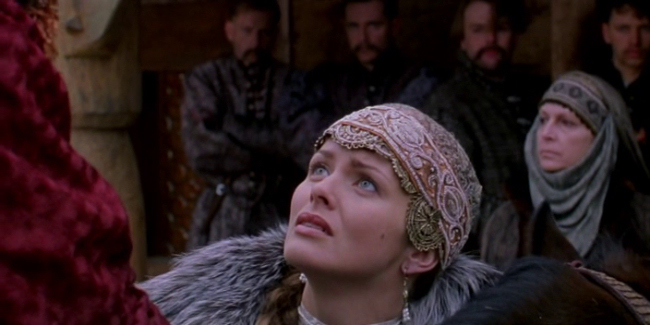
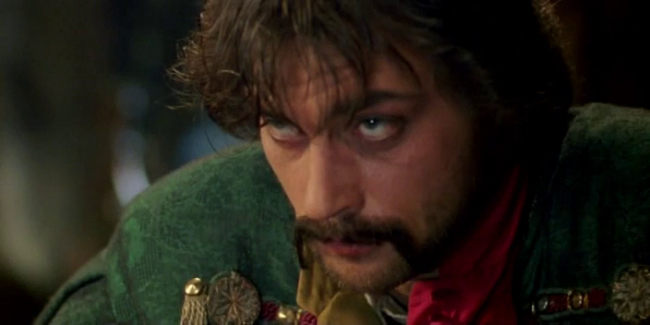



 *
*
